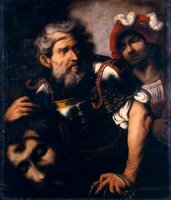Saul and the Arabs
Q: A friend said that King Saul was supposed to kill all of the Arab people and that his failure to do so is one of the reasons why God replaced him with David. She also said that the Arabs were considered a thorn in Israel’s side. Is all of this true?
A: As He did Joshua and the Judges during the conquest of Canaan, so the Lord commanded Saul to put to death many of the tribes who lived within the territory He gave to Israel as well as others along its borders. (One of the clearest commands comes from 1 Samuel 15:1-3.) This was because they continually led God’s people away from Him and into immorality and idolatry.
It was not a lack of love for these tribes on God’s part; rather a bountiful love for His people led Him to call for this. After all, the Lord was not only interested in the Israelites, but in the One who would come from them, His Son Jesus Christ. God preserved His people in light of Abraham’s Inheritance and to bring to pass the world’s Hope.
 Among the residents of the land were the Philistines and many small tribes, “kingdoms” only by the wildest stretch of imagination or human pride. Some probably numbered only a few hundred to a few thousand. They worshiped Baal, Asherah, Molech, and countless other pagan gods.
Among the residents of the land were the Philistines and many small tribes, “kingdoms” only by the wildest stretch of imagination or human pride. Some probably numbered only a few hundred to a few thousand. They worshiped Baal, Asherah, Molech, and countless other pagan gods.Some of those living in Canaan were ethnically close relatives not only to today’s Palestinians, Jordanians, Syrians, and the like, but also to Israel. Among these, we remember the Ishmaelites, Edomites, Moabites, and Ammonites. After all, Ishmael was Abraham’s son by Hagar (Genesis 16), Edom (Esau) was Jacob’s brother (Genesis 25, 27-28, 32-33). Moab and Ammon were descended from Lot, Abraham’s nephew, through his daughters’ incestuous relationships with their drunken father following the destruction of Sodom and Gomorrah (Genesis 19).
You might call some of these people “Arabs,” although the term is often reserved only for those living on or near the Arabian Peninsula or descended from their midst. The followers of Mohammed claim a lineage from Abraham through Ishmael. Their stories claim that Abraham left Hagar and Ishmael behind (Genesis 21:8-21) at what is now Mecca.
As for commanding the death of all of these people, the Lord allowed several of the Abrahamic nations to survive — at least until their continued hostility against Israel forced Him to take action against them. For example, the Lord didn’t curse the nation of Edom until Amos 1:11-12.
Even though they often weren’t related, the Lord for many years not only allowed some neighboring peoples to live, He many times blessed them and allowed fruitful trade between them and Israel. One of the most favorable of these relationships involved the King of Tyre: Hiram supplied material and built David’s house (2 Samuel 5:11) and later worked with Solomon on the construction of the Temple (1 Kings 5).
Send email to Ask the Pastor.
Walter Snyder is the pastor of Holy Cross Lutheran Church, Emma, Missouri and coauthor of the book What Do Lutherans Believe.
Technorati Tags: King Saul | Arabs | kill | slaughter | Israelites | Israel

0 Comments:
Post a Comment
<< Home